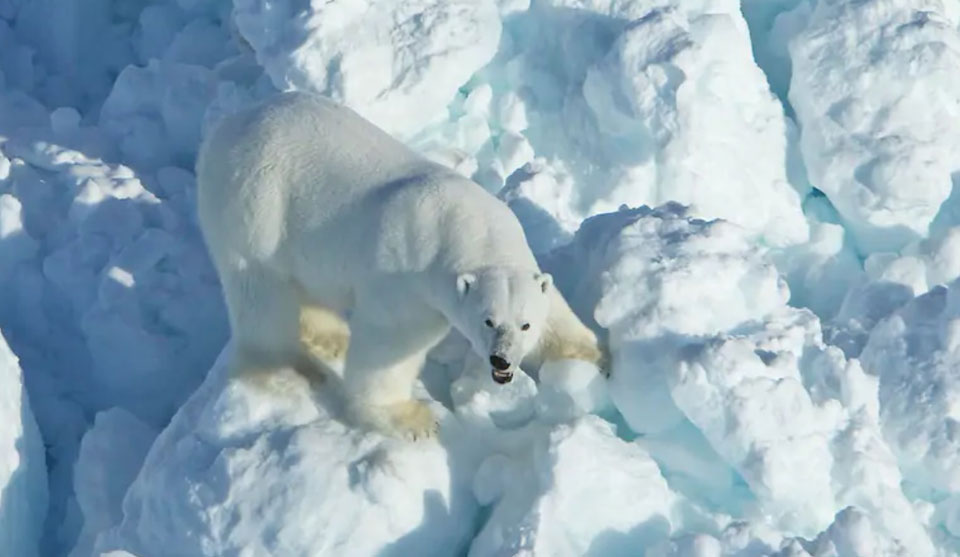
WASHINGTON—Occasionally, the nation’s corporate capitalists—in this case, its six dominant banks—do something right. And their refusal to lend big oil any money to “Drill, baby, drill!,” in former GOP Gov. Sarah Palin’s words, in the ecologically vital Arctic National Wildlife Refuge may stop lame-duck GOP Oval Office occupant Donald Trump’s last-minute scheme to let the oil giants do so.
And if the banks’ decision doesn’t stop degradation of ANWR, home to polar bears, caribou, elk, and other vital species in a pristine environment, an earlier lawsuit by Alaskan native peoples, environmental groups, and even the neighboring Yukon provincial government in Canada could end it, too.
At issue is a Trump Interior Department edict, announced Dec. 4, to sell oil and gas leases in the northeastern 1.6-million-acre section of 20-million-acre ANWR on Jan. 6, even before the comment period on such sales is supposed to end.

In practical terms, the sale would take place literally the day before Democratic President-elect Joe Biden takes over the White House, at noon, from Trump. ANWR was completely protected from 1959 through the Trump-GOP tax cut in 2017 when an Alaskan-inserted provision repealed the drilling ban.
That’s important because Biden also opposes drilling in ANWR, the environmentally sensitive area bordering on the Arctic Ocean.
Biden’s environmental plan, unveiled in July, set a goal of “permanently protecting the Arctic National Wildlife Refuge and other areas impacted by President Trump’s attack on federal lands and waters.”
His October release of a policy on Native lands and issues said he would take “immediate steps to reverse the Trump administration’s assaults on America’s natural treasures, including by reversing Trump’s attacks on the Arctic National Wildlife Refuge.” News stories have said Biden would issue an ANWR drilling ban on Jan. 20.
Just after Trump’s announcement, the Bank of America became the sixth of the six largest banks to say it wouldn’t lend money to oil firms to drill in ANWR. Before that, the other big five—Citigroup, Goldman Sachs, JPMorgan Chase, Morgan Stanley, and Wells Fargo—had bowed out, starting last year.
All said it would be uneconomic, and that’s a loophole bank regulators left when Trump issued a post-election executive order mandating banks lend to oil companies for development projects.
The lawsuit, filed earlier this year in U.S. District Court in Alaska, spells out the impact such oil development would have. It seeks a court injunction before Trump leaves office to stop the ANWR oil and gas lease sale.
“The coastal plain of the Arctic National Wildlife Refuge (Arctic Refuge) is iconic and sacred,” the court papers begin. “It provides habitat for numerous fish and wildlife species, including caribou, polar bears, birds, and wolves. It offers exceptional recreational experiences, in large part because of its incredible wilderness and wildlife values.
“Most critically, it is sacred land to the Gwich’in Nation, indigenous people of Alaska and Canada, because of the importance of the coastal plain to the Porcupine Caribou Herd and the deep cultural and spiritual connection between the Gwich’in and the caribou.”
After the tax cut lifted the drilling ban, Trump’s Interior Department and his Bureau of Land Management, which manages ANWR, “rushed to complete their environmental review and adopt an extensive and harmful leasing program,” the lawsuit adds.
That’s legalese for the corporate giveaway Trump and his agencies are pursuing.

In a familiar pattern for the Trump regime, the suit says BLM did not follow federal rules and regulations either in seeking public comment on the ANWR sale or in protecting “lands and resources” in ANWR.
Its failure “threatens the exceptional resources of the coastal plain and the subsistence, cultural, and spiritual connection between the Gwich’in people and the coastal plain.”
Interior tried to justify opening ANWR by saying it wouldn’t harm the polar bears’ habitat. But Interior’s Fish and Wildlife Service—also under Trumpite control—reached that recommendation based “on mitigation measures that are not reasonably certain to occur, and failed to consider the best available science, the impacts of the entire leasing program on designated critical habitat, and the contribution of the leasing program to climate change,” the suit says.
Together, Trump’s Interior Department and its agencies—run by former corporate and energy executives or lobbyists, though the suit does not say so—violated the Endangered Species Act. Their rushed decision broke federal law requiring notice and comment, too, it adds. Such law-breaking has been common under the Trump regime, on issues such as deporting the Dreamers.
“The agencies’ actions and decisions fail to comply with applicable law, are arbitrary, capricious, an abuse of discretion, and not in accordance with the law, in excess of statutory authority, and without observance of the procedure required by law,” the suit declares, asking for a federal court order (injunction) halting the sales.
The impact—and the publicity—were so bad that 24 U.S. banks, including those six largest, openly told the Sierra Club, which lobbied them, that they wouldn’t lend oil companies the money to drill in ANWR. Shareholder activists also opposed financing the ANWR leases to big oil. Besides, the banks said, oil prices are now so low that drilling would be uneconomic.
That prompted Trump to sign an executive order, after he lost the election to Biden, threatening the banks with unspecified retaliation—an order which banking law experts called ridiculous and without a legal leg to stand on. And even Trump’s banking regulator gave the banks the “uneconomic” loophole they used to avoid the lending. So they have.
Like free stuff? So do we. Here at People’s World, we believe strongly in the mission of keeping the labor and democratic movements informed so they are prepared for the struggle. But we need your help. While our content is free for readers (something we are proud of) it takes money — a lot of it — to produce and cover the stories you see in our pages. Only you, our readers and supporters, can keep us going. Only you can make sure we keep the news that matters free of paywalls and advertisements. If you enjoy reading People’s World and the stories we bring you, support our work by becoming a $5 monthly sustainer today.












Comments